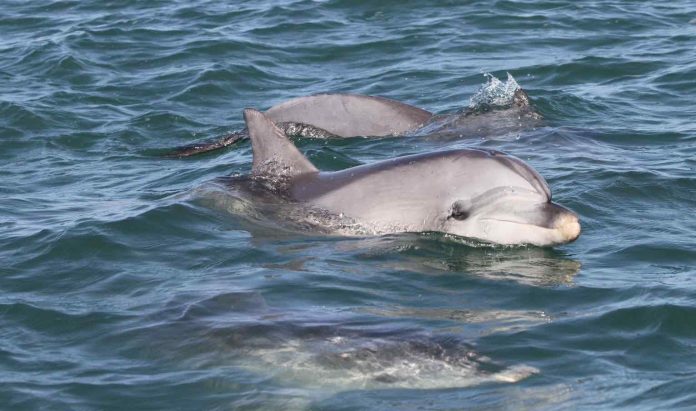Flinders University researchers have sequenced the genomes of dolphins, revealing variations that may influence their deadly immune response to a measles related virus.
Climate change and habitat modification threatens to alter disease dynamics, with viruses emerging in some populations. These viruses can cause widespread mortality, limit genetic diversity and lead to population declines and local extinctions.
“Viral linked outbreaks in wildlife populations are becoming more common, and its therefore crucial that we understand how genetic factors influence disease susceptibility” says Flinders University Associate Professor Luciana Möller, a senior author of the study.
For whales and dolphins, cetacean morbillivirus has recently emerged, killing thousands and becoming one of the greatest threats to populations worldwide.
Over a seven-month period in 2013, at least 50 dolphins died in Southern Australian waters, and particularly in Gulf St. Vincent. Researchers from the South Australian Museum confirmed that cetacean morbillivirus, a virus related to measles in humans, was a major contributing factor in the dolphin deaths.
This was the first confirmed cetacean morbillivirus linked mortality event in South Australia, and the largest within Australia.
To understand the immune response of dolphins to the virus, the Flinders University led team sequenced the genomes of surviving and non-surviving bottlenose dolphins from the outbreak.
“By sequencing the entire genome of bottlenose dolphins, we can deepen our knowledge of the species in many ways. Just one of these is by understanding how dolphins respond to, and fight infection from a concerning virus” says Möller.
Comparison of the genomes from survivors and non-survivors revealed differences in the dolphins DNA within fifty immune-linked genes that may be important in fighting infection.
“What is really interesting is that one of these genes has also been suggested to be important for immune responses of humans to the measles virus” says PhD candidate, Kimberley Batley, the lead author.
“These findings therefore not only represent a stride towards understanding how host genetic factors influence disease susceptibility in a wild population, but provide further support for the role of particular genes in fighting morbilliviruses in mammals more generally”.
“With this knowledge we can screen other populations and species worldwide to identify those that may be at a heightened risk of widespread mortality in the event of a morbillivirus outbreak”. Says Batley.
As environments continue to change and become more stressful, these findings may prove critical for conserving populations at risk of succumbing to viral outbreaks.















